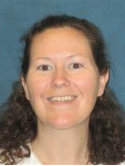Worldview orientations and personal and social risk perceptions for COVID-19 in a U.S. population-based sample Journal Article
| Authors: | Lewicka, M.; Hay, J. L.; Waters, E. A.; Schofield, E.; Orom, H.; Kiviniemi, M. T. |
| Article Title: | Worldview orientations and personal and social risk perceptions for COVID-19 in a U.S. population-based sample |
| Abstract: | Adoption of COVID-19 preventive behaviors involves considering personal risk and the risk to others. Consequently, many COVID-19 prevention measures are intended to protect both the individual engaging in the behavior and others in the population. Yet, the preponderance of research is focused on perceptions of an individual's personal risk, making risk perception for others a critical area for investigation. Two worldview orientations describing values regarding how society should be organized, hierarchy-beliefs prioritizing social hierarchy, and individualism-beliefs prioritizing personal autonomy, have been linked to a range of risk perceptions. This study objective is to examine the association of worldview orientations with COVID-19 risk perceptions for oneself and others in a United States context. Using a national sample of 410 U.S. adults, we examined the associations between worldview orientations and six facets of risk (absolute risk, risk certainty, comparative risk, risk severity, fear, feelings of risk) using demographics-adjusted multivariable regression models. We conducted separate analyses for each of the following referents: (1) personal risk, (2) risk for the average person within the United States, and (3) risk to people within specific social groups (e.g., family, co-workers). Results indicate that stronger hierarchical and individualistic orientations were associated with lower COVID-19 risk perceptions for all three referents. The results were particularly consistent for fear and feelings of risk. Individualism was related to higher risk perception certainty for personal risk and the risk to people within specific social groups. Hierarchy was related to lower perceived severity for all referents. Findings suggest that U.S. public health messaging sensitive to worldview orientations may be needed to optimize acceptance of recommendations for protective behaviors, including vaccination. The relationship of worldview orientations to health risk perceptions may help guide messaging for future infectious outbreaks where risk perceptions are t drivers of protective behavior. (PsycInfo Database Record (c) 2022 APA, all rights reserved) |
| Keywords: | risk perception; hierarchy; covid-19; worldview orientations; individualism |
| Journal Title: | Journal of Prevention |
| Volume: | 44 |
| Issue: | 1 |
| ISSN: | 2731-5533 |
| Publisher: | Springer Germany |
| Date Published: | 2023-02-01 |
| Start Page: | 53 |
| End Page: | 68 |
| Language: | English |
| ACCESSION: | 2023-21166-001 |
| DOI: | 10.1007/s10935-022-00715-x |
| PROVIDER: | Ovid Technologies |
| PROVIDER: | psycinfo |
| PMCID: | PMC9670042 |
| PUBMED: | 36394703 |
| DOI/URL: | |
| Notes: | MSK Cancer Center Support Grant (P30 CA008748) acknowledged in PubMed and PDF -- MSK corresponding author is Malwina Lewicka -- Malwina Lewicka's last name is listed as "Tuman" on the original publication -- Source: APA PsycInfo |
Altmetric
Citation Impact
BMJ Impact Analytics
Related MSK Work






